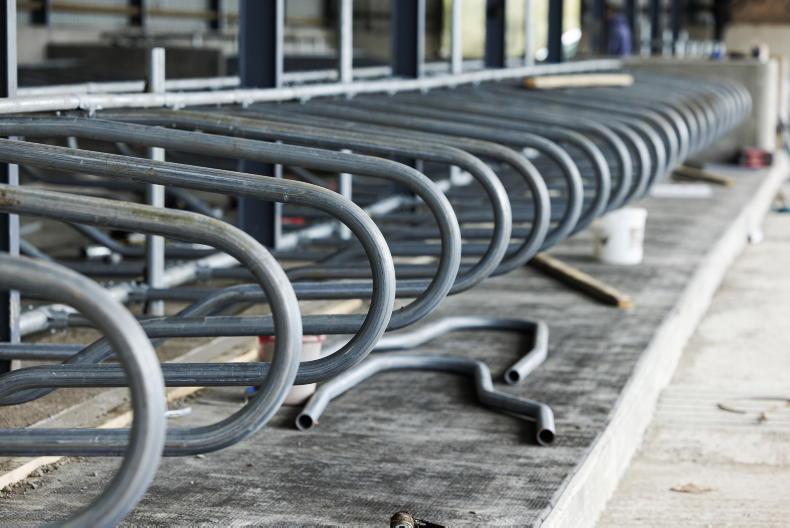The rent freeze introduced by the Government as an emergency measure during the COVID-19 outbreak is not a law that instructs tenants to stop paying rent. It means that no increases in the rental price are permitted during the emergency period. Tenants are still obliged to pay rent. However, tenants cannot be forced to leave their accommodation throughout the emergency period unless it is under exceptional circumstances.
“People have a lack of understanding on the legislation that’s out there. We would have a lot of calls on coronavirus, a lot of people’s circumstances have changed,” says Margaret McCormick, information officer at the Irish Property Owner’s Association (IPOA). She says that a significant proportion of IPOA members are farmers who have bought properties in urban areas either as a pension fund or to provide accommodation for their children when they enter third-level education.
“Straight off, we recommend that landlords talk to their tenant with understanding and empathy. Try to find some sort of temporary solutions [if they are having issues paying rent at the moment]. Contractually, a tenant is required to pay their rent. Nothing changes during the emergency period.”
In some cases, she says, a landlord and tenant will need to arrange a process to deal with residual debt when the emergency period is over. This would allow the tenant to pay back arrears when people that may have been temporarily laid off can go back to work.
“We have a sustainability issue. For our landlords to stay in business, it needs to be sustainable for them. There is also the situation where people have no pension but own property and that [rent] is their sole income. So they are in a financial situation where they need the rental income to pay their own bills.
“There has to be fair play from both sides. The economic situation coming out of the crisis will definitely be more difficult, but accommodation will still be needed.”
The emergency legislation applies to all tenancies which fall under the Residential Tenancies Act, this includes approved housing bodies, student-specific and private rented accommodation. The emergency legislation took effect on 27 March 2020 for a period of three months, and can be extended by Government order, if necessary.
Rent supplement
A means-tested payment for certain people living in private rented accommodation who cannot keep up rental payments is available. The Rent Supplement is available through the Department of Employment Affairs and Social Protection (DEASP).
“In a situation where somebody has financial difficulty it is the State’s obligation to assist them with income and housing support. The State does that using the rent supplement. We need to give forbearance as much as possible for those in financial difficulty and process the applications as fast as possible,” Margaret says.
The rent supplement is separate to the short-term work support payments of €350/week for employees temporarily laid off. Other income supports include the Illness Benefit and a Temporary Wage Subsidy Scheme for employers.
Mortgage holiday
The banks have allowed buy-to-let mortgage holders with tenants affected by COVID-19 to take mortgage repayment breaks of up to three months.
“A mortgage holiday from the bank means that you won’t pay for the mortgage for those three months. However, the interest is still accrued and you will have to pay that. It is not written off, the interest will become payable.”
Emergency legislation overview:
A notice of termination cannot be served during the COVID-19 emergency period and no one can be made to leave their accommodation unless a notice of termination was issued before the emergency period, and the Resident Tenancies Board (RTB) issues a Determination Order supporting the tenancy termination for breach of tenant obligations.Carrying out an illegal eviction, which includes prohibiting access to the property or making the property uninhabitable by disconnecting services, can result in damages of up to €20,000 being awarded to the tenant. The RTB can seek an injunction from the courts to reinstate the tenant.Rent cannot be increased. All notices of rent review, which were served before the emergency period and were due to start during this period, are paused and the tenant is not required to pay the increased amount of rent during the emergency period. A rent decrease is allowed.Tenants are still required to pay rent to their landlord during this emergency period. Tenants are encouraged to engage with their landlords and the Department of Employment and Social Protection at their earliest opportunity if they cannot afford to pay their rent. Income supports and Rent Supplement are available for those struggling to do so.Further information on these supports can be found in the Government of Ireland Guidance Document, by calling the DEASP Income Support Helpline for COVID-19 at 1890 800 024 or visiting the DEASP website.
The rent freeze introduced by the Government as an emergency measure during the COVID-19 outbreak is not a law that instructs tenants to stop paying rent. It means that no increases in the rental price are permitted during the emergency period. Tenants are still obliged to pay rent. However, tenants cannot be forced to leave their accommodation throughout the emergency period unless it is under exceptional circumstances.
“People have a lack of understanding on the legislation that’s out there. We would have a lot of calls on coronavirus, a lot of people’s circumstances have changed,” says Margaret McCormick, information officer at the Irish Property Owner’s Association (IPOA). She says that a significant proportion of IPOA members are farmers who have bought properties in urban areas either as a pension fund or to provide accommodation for their children when they enter third-level education.
“Straight off, we recommend that landlords talk to their tenant with understanding and empathy. Try to find some sort of temporary solutions [if they are having issues paying rent at the moment]. Contractually, a tenant is required to pay their rent. Nothing changes during the emergency period.”
In some cases, she says, a landlord and tenant will need to arrange a process to deal with residual debt when the emergency period is over. This would allow the tenant to pay back arrears when people that may have been temporarily laid off can go back to work.
“We have a sustainability issue. For our landlords to stay in business, it needs to be sustainable for them. There is also the situation where people have no pension but own property and that [rent] is their sole income. So they are in a financial situation where they need the rental income to pay their own bills.
“There has to be fair play from both sides. The economic situation coming out of the crisis will definitely be more difficult, but accommodation will still be needed.”
The emergency legislation applies to all tenancies which fall under the Residential Tenancies Act, this includes approved housing bodies, student-specific and private rented accommodation. The emergency legislation took effect on 27 March 2020 for a period of three months, and can be extended by Government order, if necessary.
Rent supplement
A means-tested payment for certain people living in private rented accommodation who cannot keep up rental payments is available. The Rent Supplement is available through the Department of Employment Affairs and Social Protection (DEASP).
“In a situation where somebody has financial difficulty it is the State’s obligation to assist them with income and housing support. The State does that using the rent supplement. We need to give forbearance as much as possible for those in financial difficulty and process the applications as fast as possible,” Margaret says.
The rent supplement is separate to the short-term work support payments of €350/week for employees temporarily laid off. Other income supports include the Illness Benefit and a Temporary Wage Subsidy Scheme for employers.
Mortgage holiday
The banks have allowed buy-to-let mortgage holders with tenants affected by COVID-19 to take mortgage repayment breaks of up to three months.
“A mortgage holiday from the bank means that you won’t pay for the mortgage for those three months. However, the interest is still accrued and you will have to pay that. It is not written off, the interest will become payable.”
Emergency legislation overview:
A notice of termination cannot be served during the COVID-19 emergency period and no one can be made to leave their accommodation unless a notice of termination was issued before the emergency period, and the Resident Tenancies Board (RTB) issues a Determination Order supporting the tenancy termination for breach of tenant obligations.Carrying out an illegal eviction, which includes prohibiting access to the property or making the property uninhabitable by disconnecting services, can result in damages of up to €20,000 being awarded to the tenant. The RTB can seek an injunction from the courts to reinstate the tenant.Rent cannot be increased. All notices of rent review, which were served before the emergency period and were due to start during this period, are paused and the tenant is not required to pay the increased amount of rent during the emergency period. A rent decrease is allowed.Tenants are still required to pay rent to their landlord during this emergency period. Tenants are encouraged to engage with their landlords and the Department of Employment and Social Protection at their earliest opportunity if they cannot afford to pay their rent. Income supports and Rent Supplement are available for those struggling to do so.Further information on these supports can be found in the Government of Ireland Guidance Document, by calling the DEASP Income Support Helpline for COVID-19 at 1890 800 024 or visiting the DEASP website.









SHARING OPTIONS